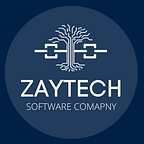There are a few benefits of becoming a publicly-traded company. If gaining a lot of capital quickly is what a company needs, it is in its best interest to go public. By reaching a large pool of investors, companies can access more opportunities to increase their funding for their research, expansion, or infrastructure. Also, it makes it easier for companies to liquidate their assets more quickly than privately held companies. However, a drawback of going public is the time and money to get started. It can range between six to nine months for a company to go public. And companies can accrue fees along the way for the required reporting and underwriting. So, companies must determine if sharing ownership is necessary for them to grow.
For a company to go public, it is ordinarily through an initial public offering or IPO. However, a company should thoroughly evaluate its operations and finances before initiating an IPO. Companies must have predictable revenue to demonstrate that they are reliable and secure. Also, companies must indicate that there is potential for future growth so that investors are more willing to purchase their shares. That requires a detailed business plan that illustrates its goals and how to reach them in the next few years. Furthermore, a company must not be in debt and have enough capital to finance this undertaking, or else they will not be able to go forward with an IPO.
The next step is underwriting, and that requires hiring an investment bank to evaluate a company’s risk for investors. A company will negotiate a deal with an investment bank. The investment bank will either offer a guarantee to sell all the company’s stocks or offer the best effort agreement, which does not offer a guarantee. In exchange, the investment bank will receive a commission for their underwriting service that can vary between 1 percent to 7 percent. First and foremost, a company needs to select an underwriter who understands its industry for its shares to be marketed to the appropriate investors. Depending on the time frame, it may be beneficial for a company to reach out to several investment banks to evaluate their standing in the market. Once an investment bank is selected to be an underwriter, they will assist in arranging all the requirements for the IPO. A company should have a team of lawyers and accountants to help with the IPO process. After an in-depth analysis, the underwriter will register the company with the Securities and Exchange Commission (SEC) by filing the Form S-1 Registration Statement. The company must also be approved by the SEC before selling its shares to the public, taking up to two weeks after registering. After the SEC does their due diligence, they will then assign the company date for selling their stocks to the public.
Once a company has received its approval and date from the SEC, it must advertise itself to institutional investors with a red herring document that the investment bank prepares. The red herring document consists of the company’s business operations and projected financial performance. The investment bank will then market the company’s shares to potential investors and evaluate the demand, taking up to 3 to 4 weeks. It takes longer because institutional investors can be difficult to sell to since they are more knowledgeable than the average investor. Institutional investors include businesses like insurance companies, commercial banks, endowment funds, and hedge funds. When these investors agree to purchase shares, they are limited to a certain amount, not binding. The reason that the commitment to buy shares is non-binding is that there is no set price for how much the shares are worth. The purpose of showcasing the shares is to gauge the demand for them, factor into the price.
Companies will need to work with their underwriter to develop the price for their shares and the number of shares. Some conditions determine the price and comprise the market economy, the demand from the institutional investors, and the company’s growth projection. Normally, shares are underpriced to minimize risk for investors and sustain their commitment to purchasing the company’s shares. After a price has been established, the company will choose a stock exchange like the New York Stock Exchange (NYSE) or the National Association of Securities Dealers Automated Quotations (NASDAQ).
On the IPO’s date, the investment bank will purchase all of the company’s shares or sell the shares on behalf of the company to the public, depending on the opening agreement. The investment bank will first offer the shares to the initial investors and other chosen individuals during a 25 day period before offering the shares to the general public. It takes time for stocks to go higher than their introductory offer price, but this reflects how well the investment bank did to market the shares.
References
Christensen, C. (2019, July 18). Investment Banks and IPOs: Selecting a Bookrunner. Retrieved December 11, 2020, from https://www.ipohub.org/investment-banks-ipos-selecting-bookrunner/
DeChesare, B. (2020, November 13). IPO Process: Steps To Going Public & Popular Alternatives. Retrieved December 5, 2020, from https://www.mergersandinquisitions.com/ipo-process/
Lewis, M. (2020, October 04). How to Take a Company Public. Retrieved December 09, 2020, from https://www.wikihow.com/Take-a-Company-Public
